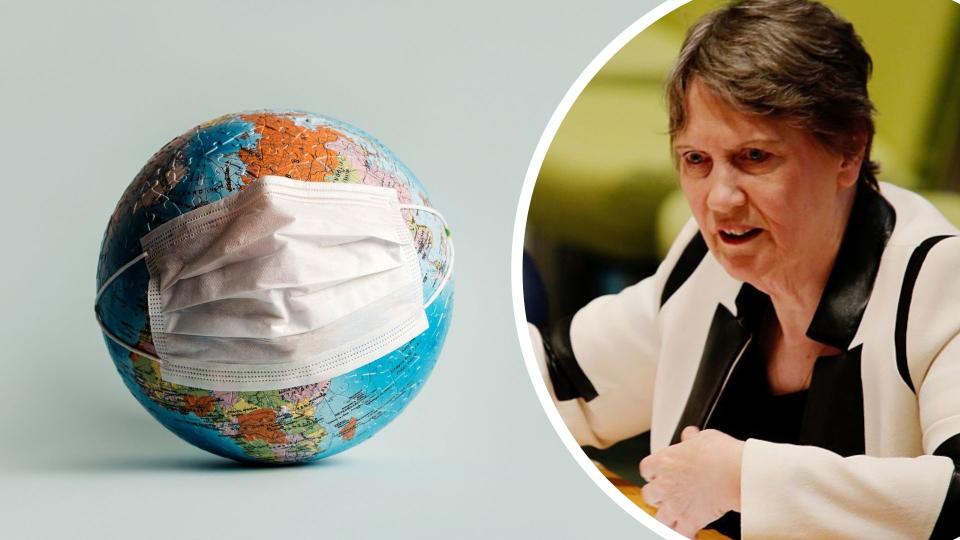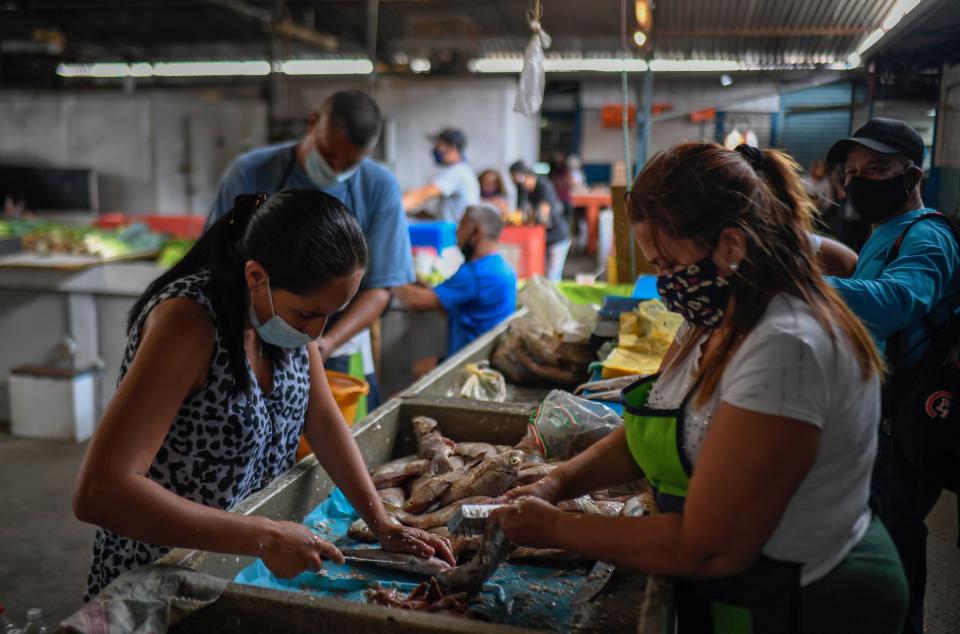‘Nightmare scenario’: WHO Covid-19 investigator shares worst fear

The Covid-19 pandemic has already triggered widespread economic destruction and more than 905,000 deaths worldwide, but it also raises major peace and security questions, a leading coronavirus expert has said.
Former New Zealand Prime Minister Helen Clark is tasked with investigating government responses to the Covid-19 disease, and providing insight into how to prevent future pandemics as co-chair of the World Health Organisation’s Independent Panel for Pandemic Preparedness and Response.
And while the “unprecedented level of scientific investigation” into a vaccine gives her hope, the risk of the disease causing social collapse is also her worst fear, she told Yahoo Finance.
She said countries like Venezuela are particularly vulnerable to this. The South American country’s ongoing socio-political crisis was already causing shortages of food and medical supplies before the pandemic struck, while a mass exodus of doctors and medical staff has also caused catastrophe in local hospitals.
“When you get economic and social collapse, think of the implications for neighbours as people stream across borders, and the tensions that that creates,” Clark said.
“Think of the more than 100 low- and middle-income countries that applied to the International Monetary Fund for emergency support - that it doesn’t have the resources to fully provide. Think of countries where economies collapse, tax revenue collapses, there's no money to fund the health system, schools. People are going hungry, jobs and livelihoods are lost.

“This is a recipe for severe internal discontent.”
When complaints are met with repression, rather than understanding from the government, then there is an increased risk of implosions, Clark said.
“Implosions have risks to peace and security internally, but then have implications for neighbouring countries where you get a spillover of people fleeing, trying to seek something better. That’s my nightmare scenario.”
Polarisation presents ‘extremely disappointing’ coronavirus challenge
The United Nations Security Council has so far been unable to reach a resolution declaring Covid-19 a threat to global peace and security, as it did with the Ebola outbreak in 2014, Clark noted, describing this sort of resolution necessary to prevent security risks.
That resolution called on member states to provide more resources to fight the outbreak, with 2,600 people having died of the Ebola outbreak at the time.
“It is extremely disappointing that the UN Security Council at the moment is so polarised it is incapable of passing the same kind of resolution,” Clark said.
Clark, who ran to be UN Secretary-General in 2016 and who formerly headed the United Nations Development Program (UNDP) from 2009 to 2017, said the Security Council needs to call for global cooperation to fight the virus.
“The Security Council can’t work without the goodwill and cooperation of the major players, and we haven’t had that at that level yet.”
Is it still ‘mission impossible’?
Clark hesitated to accept the WHO appointment in July as she considered it “mission impossible”, she told Newstalk ZB at the time.
Months later, Clark said that view remains.
“It hasn’t really changed in the sense that it will be impossible to please everybody, and you shouldn’t set out trying to please everybody. What we need to do is an honest job of assessing the evidence as we find it and making recommendations which we believe will be helpful in improving the world to deal with the next emergence of a novel coronavirus, or such disease.
“If we have a flat-footed response, like this time again… this is devastating for world economies and societies, so we have to do better and I think everybody recognises that.”
Helen Clark will be speaking about the economic catastrophe caused by the coronavirus pandemic, and how leaders deal with crisis at the Yahoo Finance All Markets Summit on 17 September. Register here for your tickets.

 Yahoo Finance
Yahoo Finance 

